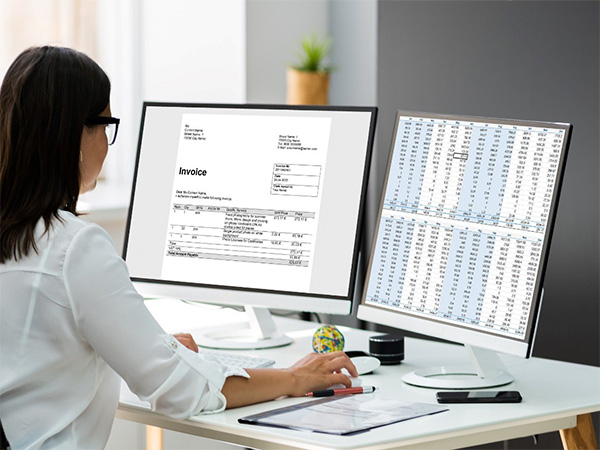The Future of Accounting Software: Trends for 2025 and Beyond
Aug 14, 2025
VMPL
New Delhi [India], August 14: Having worked closely with micro, small, and medium businesses (MSMEs) for over two decades, I have seen how transformative the right accounting tools can be in helping businesses streamline billing, avoid losses due to incorrect pricing and other manual errors, simplify tax compliance, ensure full input tax credit claims, and optimize bookkeeping processes.
When implemented effectively, modern accounting solutions empower business owners to shift their focus from routine financial tasks to planning and business expansion. I know multiple entrepreneurs who, after adopting smarter financial tools, finally found the bandwidth to focus on growth, innovation, and customer relationships.
That said, there's still room to grow.
In many cases, businesses already have capable accounting software but aren't fully utilizing its capabilities. Many companies, despite having the right technology, continue to spend hours reconciling invoices, chasing payments, and navigating tax filings, while most of these tasks could easily be automated or simplified.
I recently came across a study from Wolters Kluwer that supports this observation. It reveals that 90% of small firms use technology to enhance productivity, staff engagement, and overall client experience. However, only 7% of them feel they are truly maximizing the value of technology. This gap between adoption and optimization is not a failure but an opportunity.
By 2030, AI in accounting is projected to reach $37.60 billion. A PwC study also suggests that almost 56% of future accounting jobs will require automation skills. Businesses can easily cut their reconciliation time by half and improve cash flow forecasting accuracy by 35% simply by integrating AI into their accounting systems.
Cloud-based accounting has also proven to be a defining shift. Five years ago, I remember sitting in a meeting where a business owner debated whether moving to the cloud was worth the risk and insisted their on-premise system was "good enough." Fast forward to today, that same business leader tells me they can't imagine running operations without real-time access to financial data.
It's not coming just from my personal experience, but numbers back this up, too. Companies that transition to cloud-based accounting report an average 30% improvement in operational efficiency.
As businesses move on the cloud, one challenge they face and need to address is that of data security. Financial data is one of the most targeted assets for cybercriminals. They use viruses, malware and their ability to break through weak password-based security to cause devastating fraud-related losses. While these risks are avoidable, many businesses choose to ignore them until it's too late.
Beyond automation and security, integration will define the next era of accounting. Businesses today operate across multiple platforms, including e-commerce, digital payments, and subscription models. If your accounting software isn't pulling in real-time data from all revenue sources, you're definitely not in control of your financial future. Automatic sync of all data points, advanced integration with banks, payment gateways & UPI, and the integration of automated tax calculation tools with the accounting platform are going to be game-changers.
As I see it, the future of accounting is all about fundamental transformation. Businesses that resist automation, AI, and cloud adoption aren't just delaying progress but putting themselves in a vulnerable position. Companies have witnessed up to a 35% increase in forecasting accuracy and a 20% reduction in financial discrepancies within just 6 months of adopting integrated solutions for robust accounting, seamless GST compliance, and efficient inventory and invoice management. Incorporating a dedicated inventory management software alongside the accounting platform further streamlines operations, helping businesses gain real-time visibility into stock levels, reduce wastage, and improve order fulfillment accuracy. The results are real, measurable, and game-changing.The results are real, measurable, and game-changing.
Accounting has evolved from a passive function to a strategic aspect of business. Looking ahead to 2025 and beyond, organizations benefit from exploring innovative accounting software and embracing technology solutions that support long-term growth and adaptability. The choice is clear - proactive investment in advanced accounting solutions is essential for maintaining a competitive edge.
(ADVERTORIAL DISCLAIMER: The above press release has been provided by VMPL. ANI will not be responsible in any way for the content of the same)








